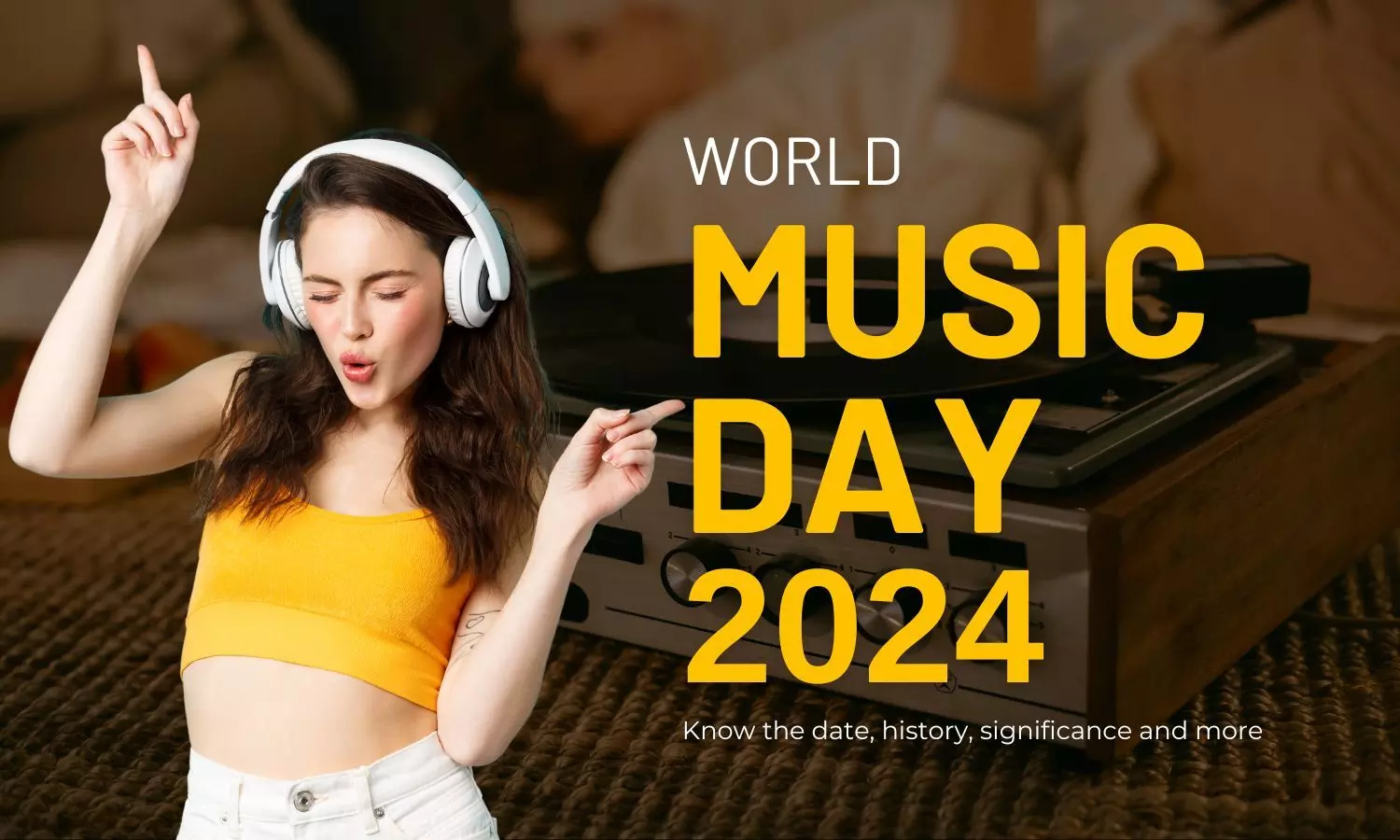International Music Day 2024: History, Significance; All you need to know
International Music Day is celebrated every year on October 1 to instill peace and harmony among various cultures through the soulful language of music.
International Music Day 2024: History, Significance; All you need to know

What’s music to your ears? Is it the symphony of those soulful words? Is it the sound of silence? Is it the sound of birds chirping?
Well, to put it simply, music is a treasure of stories that flows with rhythm. It doesn’t always need words—it's the expression of ideas that unites people from all walks of life. To celebrate this unity International Music Day is celebrated every year on October 1.
International Music Day: History And Significance
Every year International Music Day is celebrated on October 1 to instill peace and harmony among various cultures through the soulful language of music. During the course of the day, people spend their time appreciating diverse forms of music from across the globe. Since its inception in 1975, the festival has been celebrated in across 150 countries.
History of International Music Day
The International Music Council (IMC), an advisory body of UNESCO, passed a resolution during the 15th General Assembly in 1973 to propose a dedicated day to honour music. In 1974, British Musician Yehudi Menuhin, the then president of IMC, steered the cause by proclaiming October 1 as International Music Day and from thereon it came to fruition on October 1, 1975.
Now, let’s take a look at various ways by which we can celebrate this day
1. Organising music concerts in your locality
Every neighbourhood has those bunch of individuals who love to showcase their talent by performing music in front of the people. You can celebrate the day by organising a musical concert in your society's office by inviting colony residents and local administrative leaders. Moreover, if you want to increase the buzz around this festival, live stream the event across various social media platforms.
2. Silence is the key
International Music Day need not be a pomp and show affair. Instead what you could do is to insist everyone in our locality to switch off their electronic devices for a few minutes and urge everyone to listen to the natural wonders of nature, viz. chirping birds, whistling winds and rustling leaves. This move should prove to be a hit among people as it will give them an opportunity to escape the hustle and bustle of their daily life.
3. Invite a music teacher
Music plays an important role in shaping a person’s character and wellbeing and on this momentous occasion you can invite a music teacher in your locality to throw some light on the subject of importance and significance of music.
Now, think about this for a minute. If International Music Day talks about peace and harmony, then what about those people who are hard of hearing? What about those individuals who suffer from one or the other form of disability? Shouldn’t we as humans play a role in bridging the gap between the privileged and the disadvantaged by bringing everyone on a same pedestal? Well, over the years the music industry has seen a lot of changes in bridging this gap. Here are some,
i) Musical Vibrations Equipment
These are equipment that are specifically designed for converting musical sounds into vibrations via a vibrotactile technology, which helps individuals who are hard of hearing. Vibrotactile shakers, that is, electrodynamic transducers facilitate efficient and precise reproduction of vibration, which turns sound into vibrations.
ii) Inclusion of captions, transcripts and sign language interpretation
People who are hard of hearing, blind or have low vision can be benefited during music festivals if organisers make an effort to provide captions and transcripts during the musical performance. Representation of visual information can also enhance the experience of the less privileged, which will in turn bridge inclusivity. Notably, usage of sign language will increase the participation people who are hard of hearing
iii) Assistive technology
Assistive technology equipment includes any product or equipment that helps to steer functional ability of the disabled people. For e.g., screen readers, voice control, eye tracking and many more.

